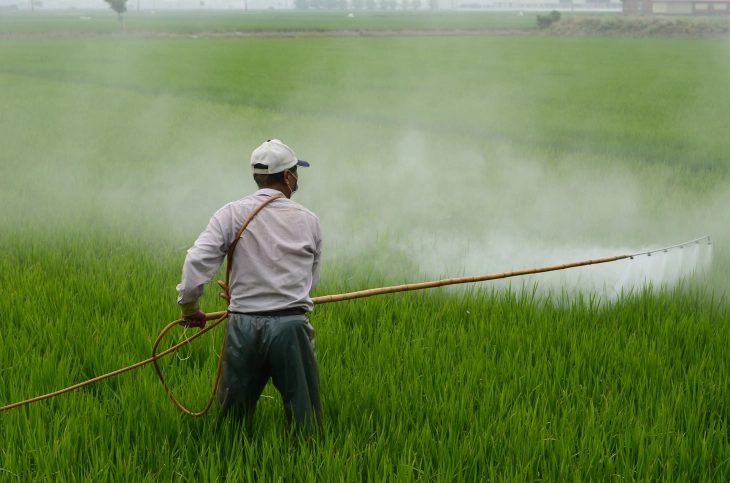EU remains dependent on 'high volumes' of pesticide, agency warns
- European Union policymakers and member states will need to do much more if the bloc hopes to achieve a proposed goal of halving the use of chemical pesticides by 2030, the European Environment Agency (EEA) said on Wednesday.
- Post By Ivan Kolekevski
- 18:04, 26 April, 2023

Copenhagen, 26 April 2023 (dpa/MIA) - European Union policymakers and member states will need to do much more if the bloc hopes to achieve a proposed goal of halving the use of chemical pesticides by 2030, the European Environment Agency (EEA) said on Wednesday.
In an analysis on how pesticides impact human health and ecosystems in Europe, the agency said EU agricultural production still "relies on high volumes of chemical pesticides to maintain crop yields."
Instead of going on the decline, pesticide sales in the EU were "relatively stable" at around 350,000 tons per year from 2011 to 2020.
The largest quantities of most active substances were sold in Germany, France, Spain and Italy - the four top agricultural producers in the 27-member EU.
In mid-2022, the European Commission presented a legislative proposal that, among other things, provides for reducing the use and risks of chemical pesticides by 50% by the end of the decade. It has met strong resistance from critics who worry about the impact on agricultural industries and European food security.
The widespread use of pesticides is a major source of water, soil and air pollution, as well as a driver of biodiversity loss and pest resistance, the Copenhagen-based agency wrote.
Human exposure to them is linked to chronic diseases such as cancer and heart, respiratory and neurological diseases.
"In 2020, one or more pesticides were detected above thresholds of concern at 22% of all monitoring sites in rivers and lakes across Europe," the study said.
In a comprehensive study in five European countries between 2014 and 2021, at least two pesticides were detected in 84% of the urine samples taken, a rate EEA expert Dario Piselli described as worrying.
Children consistently had higher pesticide concentrations than adults and were particularly vulnerable to adverse health effects.
Photo: MIA archive







